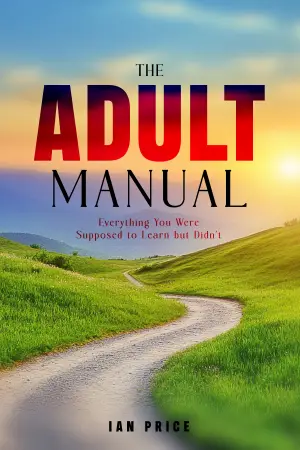As an avid reader who enjoys diving into the realms of psychology and self-help, I found myself drawn to Shift: Managing Your Emotions – So They Don’t Manage You by Dr. Ethan Kross. The intriguing premise of mastering our emotional lives through science-based methods captured my interest. I was particularly interested in how emotions, often seen as burdens, could be understood as tools that guide us through daily life’s complexities.
Dr. Kross begins the book with a powerful personal narrative about his grandmother’s experiences during the Holocaust, which sets the stage for the book’s exploration of emotions. This deeply personal touch, alongside scientifically rigorous content, was engaging. Kross asserts that emotions should not be categorized as good or bad—rather, they are valuable pieces of information. He further emphasizes that we have the power to manage our emotions rather than let them dictate our responses.
Positives:
One aspect of Shift that particularly resonated with me was how Kross dismantles common myths about emotion management, such as the idea that avoiding uncomfortable feelings is inherently toxic. This fresh perspective is not only enlightening but also aligns with some of the experiences shared by other readers. For instance, Steve Ceresnie highlights the book as "a blueprint for understanding your emotions," praising Kross’s ability to blend rigorous research with practical strategies like the ABC model (Adverse event, Belief, and Consequences). This framework encourages readers to reflect on how their beliefs affect emotional outcomes, an idea I found especially transformative.
Another positive point frequently noted by readers is the book’s readability. With its engaging anecdotes and practical tools, it can be easily digested in segments. Many, like Kathy Fraser, appreciated how the book can be approached at one’s own pace, allowing time for contemplation and application of the concepts introduced. Additionally, the blend of real-life stories with scientific insights makes the content relatable and actionable, facilitating an emotional landscape that feels navigable rather than overwhelming.
Drawbacks:
However, not all feedback was overwhelmingly positive. Some readers felt that the book could have provided more explicit tools for immediate emotional management. For example, one reviewer lamented that while Kross shared compelling narratives of others mastering their emotions, the practical takeaways were somewhat lacking when compared to expectations set by interviews and podcasts featuring the author. This sentiment echoed my own thoughts, as I occasionally found myself yearning for more actionable steps rather than illustrative stories.
Furthermore, while the ideal of creating an "emotional oasis" sounds enchanting, it sometimes felt a bit abstract. Not every reader may find it easy to translate such concepts into their unique lives. I believe that broader, concrete examples on practical applications could enrich the book further for those seeking well-defined strategies.
Overall, I found that Shift delivered most of what it promised as a "revolutionary guide to mastering your emotional life." The insights offered are powerful and backed by Dr. Kross’s extensive research, creating a book that is as engaging as it is informative. Therefore, I understand why many readers, including myself, would rate it highly—its ability to shed light on how emotions can be harnessed for personal growth is invaluable.
In conclusion, while the book could have benefitted from additional concrete tools for immediate application, it provides a thoughtful and research-backed perspective on mastering emotions. I would recommend Shift to anyone interested in understanding their emotional life better and who seeks to navigate the challenges that come with it. Overall, I’m giving this a solid 4.5 stars. Whether you’re an experienced reader in self-help or just starting your journey, Dr. Kross’s work is undoubtedly worth your time.








